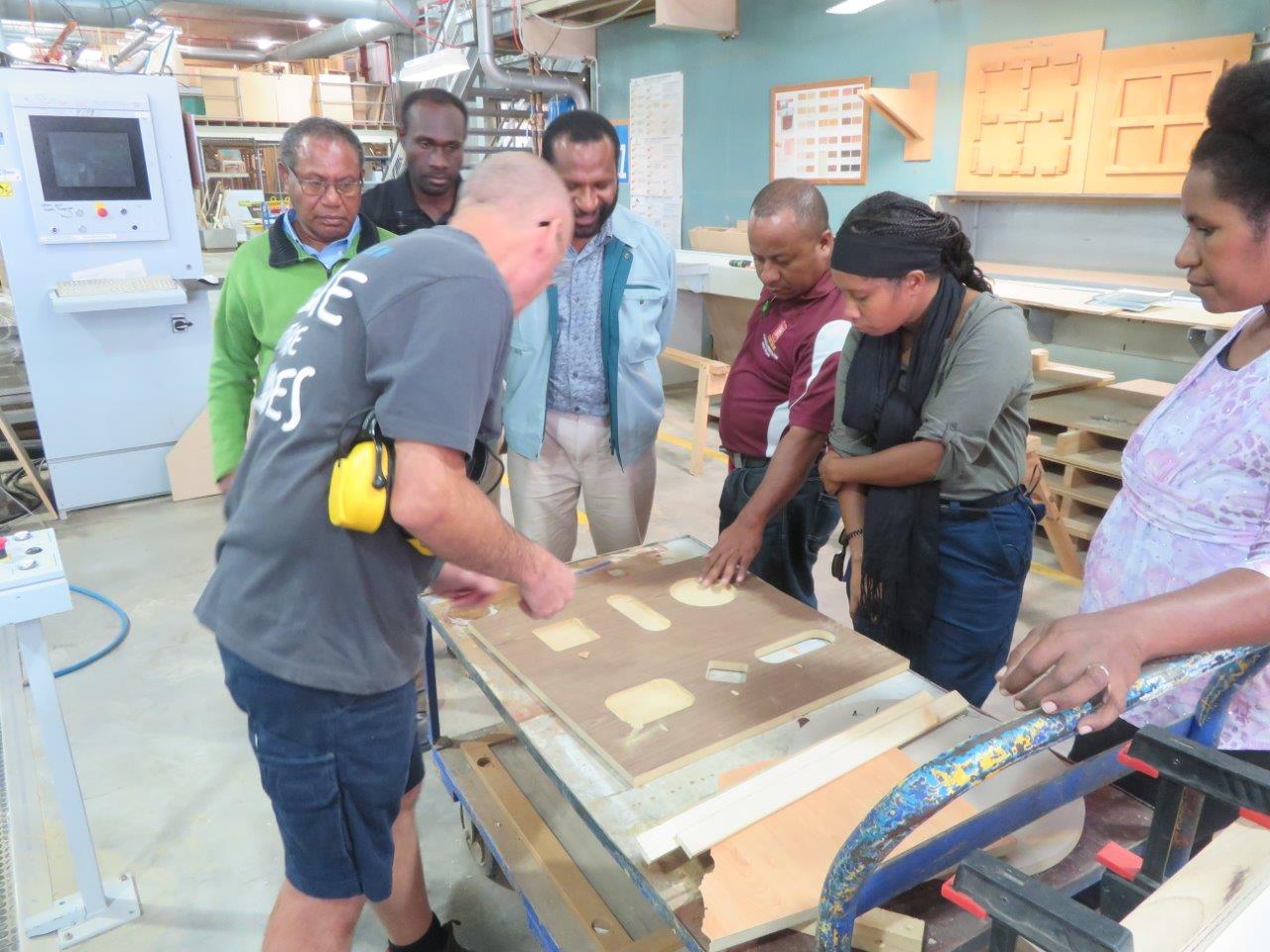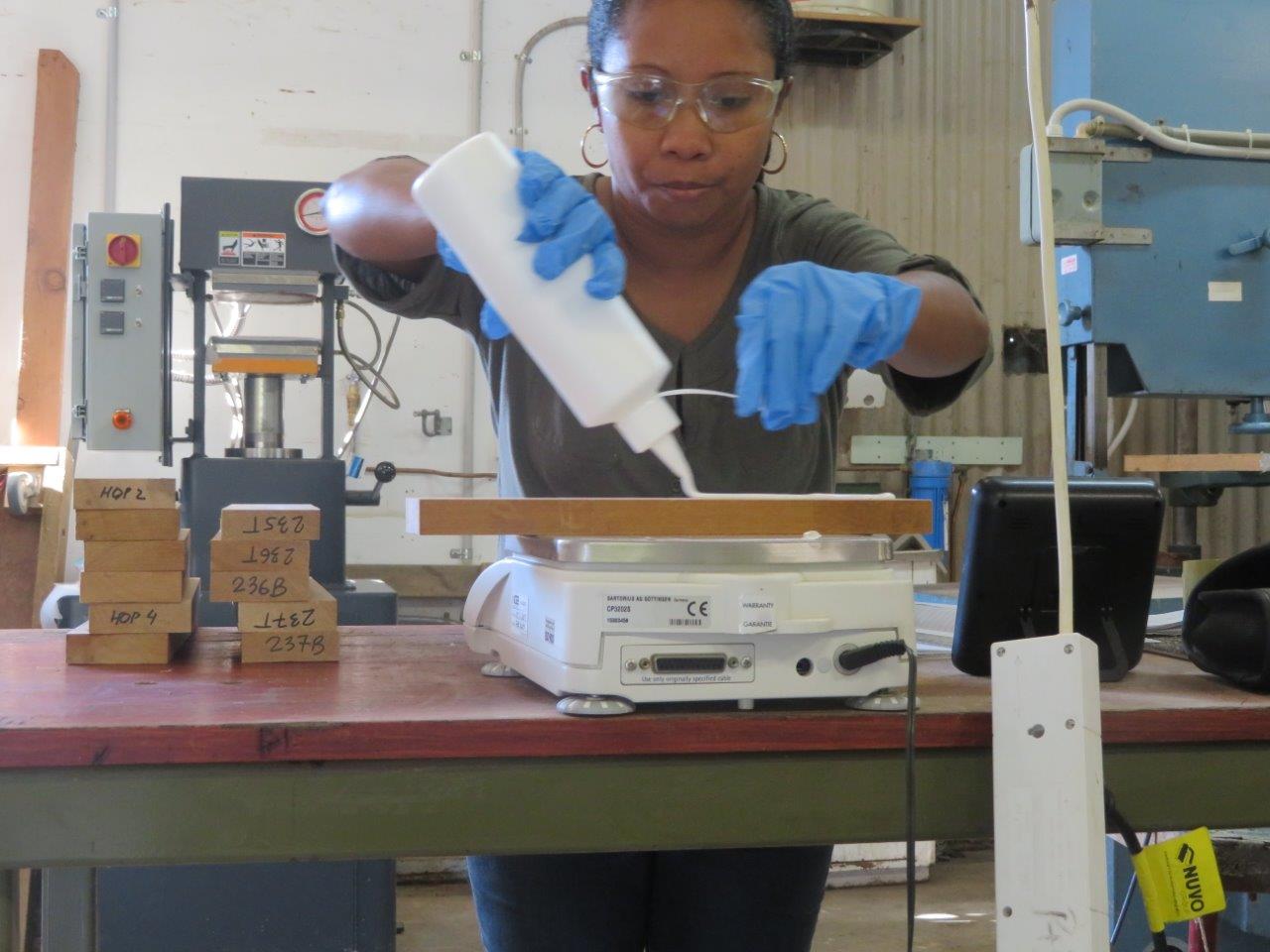‘My grandfather (Michael Galore) was one of the first botanists in Papua New Guinea (PNG) and his stories of working in the field around Papua New Guinea and overseas were so fascinating.
‘I thought that I should do this.’
At 29 –years-old, Elaine Galore is embarking on a journey to follow her grandfather’s footsteps—to carve out a place for herself in the science of forestry.
‘Forestry is a complex area with a lot to offer. What stands out to me is how it assists in the development of the rural communities,’ Elaine says.
In 2016, Elaine joined a research project with other young researchers and scientists from PNG and Australia to increase value-added wood processing in PNG. The aims of the project were to increase knowledge of wood properties and processing characteristics of PNG timbers, test and evaluate different methods of value-added processing systems, and estimate the contribution and distribution of economic impacts to national and local economies.

The PNG Government wants to encourage domestic processing of 80% of the timber harvested from its forests. Increasing domestic downstream processing is important for PNG because it contributes to foreign exchange, employment, and national and regional economies.
‘But there have been many challenges that PNG faces, which the project hopes to address. We look forward to using this new knowledge to help PNG to implement value-added wood processing policies, strategies and practices,’ says Dr Norah Devoe, ACIAR Research Program Manager.
In the project, ACIAR brought together education, research and training institutions. The project was led by the University of Melbourne, working in partnership with the PNG Forest Authority, the PNG University of Technology through the Timber and Forestry Training College, the Forest Research Institute and Forest Authority.
Since 2016, the project team has made a series of significant findings.
The team established a database of PNG timber species, including their properties and processing characteristics such as gluing, machinability and preservation treatments.
‘The database will help the timber industry to promote timbers for different products and applications depending on their properties and characteristics. It will also be a valuable resource for research education and training in PNG and the world’, says Dr Devoe.
The team found that the strength and durability properties of some species obtained from secondary and plantation forests were lower than those found in old‐growth forests. Dr Devoe says this highlights that it is important for researchers to assess wood properties of younger timber sources. ‘It also means that timber companies will need to adjust their processing and manufacturing methods.’
The project has supported production trials of a Central Processing Unit within the Timber and Forestry Training College. This found there were opportunities to increase landowner profits by selling their timber for further processing into value-added products.
The project has also made significant achievements in building local capacity in wood science, wood processing, manufacturing and waste utilisation.

Through the project, young PNG researchers like Elaine have benefited from working alongside scientists and researchers from Australia. Strong networks have been developed among partner organisations in education, research, training and the industry.
Her time working with the ACIAR project has now inspired her to go a step further. Elaine wants to pursue research to investigate the natural durability of PNG timbers against marine borers.
‘In PNG we use wood in both marine and freshwater applications, but there’s not enough information on wood used for that purpose. Other countries have researched this but not PNG’, Elaine says.
‘I have applied for the 2020 John Allwright Scholarship under ACIAR and I am excited that I have been accepted.’
The John Allwright Fellowship supports individuals, like Elaine, from partner countries to receive postgraduate qualifications in Australia. The program gives researchers the opportunity to remain involved in ACIAR projects throughout their studies and continue the research on their return home.
Elaine has a strong message for young women who are looking to pursue careers in research.
‘It is important to be involved in work that is in your strengths and to continue to develop your capacity, knowledge and skills, as well as support yourself and your family.
‘While doing this, look out for opportunities—and there are a lot out there—to achieve your dreams.’
For further information, including access to related materials, please contact the Australian High Commission media team: +675 7090 0100
